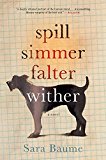Summary | Excerpt | Reviews | Beyond the book | Read-Alikes | Genres & Themes | Author Bio

The Incredible True Story of a WWII Airman and the Four-Legged Hero Who Flew At His Side
by Damien LewisIt feels uncouth to exclaim "What an adventure!" about the close relationship between a Czech airman and his newfound German Shepherd in the thick of World War II, one of the darkest times in the history of the world. Yet that's the exact vibe that author and burgeoning war dog historian Damien Lewis gives off in The Dog Who Could Fly, and it is true – together they have an incredible, heroic adventure.
In 1938, escaping his beloved, native Czechoslovakia before the Nazis rolled in and seized control, Robert Bozdech joined the French Air Force. He was practically seething with patriotic rage, wanting to get up in the air and shoot down the Nazis so he could have his country back. But in the winter of 1939, on board a Potez 63 fighter-bomber, gunner Robert and his French pilot, Pierre, were shot down by German ground fire from the ground, their plane crashing in a no-man's land between the French Maginot and German Siegfried lines.
In an abandoned farmhouse between those lines, while trying to tend to his injured pilot, Robert discovered an abandoned German Shepherd puppy. He initially left the pup behind when he and Pierre prepared to get through the no-man's land, but found he couldn't do it. And when Pierre told him to go back and kill the dog because its howling exposed their position - well, that was the moment it was clear that Robert had bonded with the dog. He will not kill him. On the contrary, the dog helps him get through the war; helps diminish the scope of sheer human insanity.
Through Lewis's eager, almost breathless, you-are-right-there writing, the adventure between man and dog unfolds. Robert and Ant – named after a Czech Air Force aircraft, and later changed to Antis – are forced to flee besieged France as the Germans roll in, board a train to Montpellier, then join a ship at Marseilles, sailing to Gibraltar. (Ant is a risky stowaway on the ship, adding to the suspense.) From there, with his fellow Czech comrades, Robert joins the Royal Air Force, embarking on a career that includes officers both supportive of, and disgusted with, Antis. Robert flies as a gunner on bombing missions. Sometimes Antis is on board and, other times, he doesn't move from his spot near the airfield until Robert gets back. These times lead to some harrowing moments when Robert's plane has either crashed or must divert.
My only disappointment with The Dog Who Could Fly is in its epilogue. There's one rushed paragraph about a deeply sad escape that Robert makes with Antis, but without enough of the descriptive details that are in the rest of the book. In his introduction, Lewis is reverent of Robert's family, who allowed him to have a copy of Robert's manuscript, with which to work from. So perhaps Robert wrote about that escape briefly in his own manuscript, and that's what's reflected in the epilogue. But after the lively journeys experienced in the pages of this novel, Lewis surely could have mentioned in the "References and Sources" page the lack of available information, if that was the case.
However, it doesn't detract overall from Lewis's obvious passion for delightful turns of phrase (as in the "thin, wintery smile" of Station Warrant Officer Meade, who is the disciplinarian of RAF Honington), his respectful attention to detail, and his love of this remarkable true story. Not only has Lewis found his niche, (this is the third dog book he has written, with two previous books about two modern-day military working dogs.) Any further stories he writes about dogs of war would be a far greater honor to those dogs and their partners than any government could bestow.
![]() This review was originally published in The BookBrowse Review in July 2014, and has been updated for the
August 2015 edition.
Click here to go to this issue.
This review was originally published in The BookBrowse Review in July 2014, and has been updated for the
August 2015 edition.
Click here to go to this issue.

If you liked The Dog Who Could Fly, try these:

by Sara Baume
Published 2017
A debut novel already praised as "unbearably poignant and beautifully told" (Eimear McBride) this captivating story follows - over the course of four seasons - a misfit man who adopts a misfit dog.

by Julie Checkoway
Published 2016
The inspirational, untold story of impoverished children who transformed themselves into world-class swimmers.
Your guide toexceptional books
BookBrowse seeks out and recommends the best in contemporary fiction and nonfiction—books that not only engage and entertain but also deepen our understanding of ourselves and the world around us.